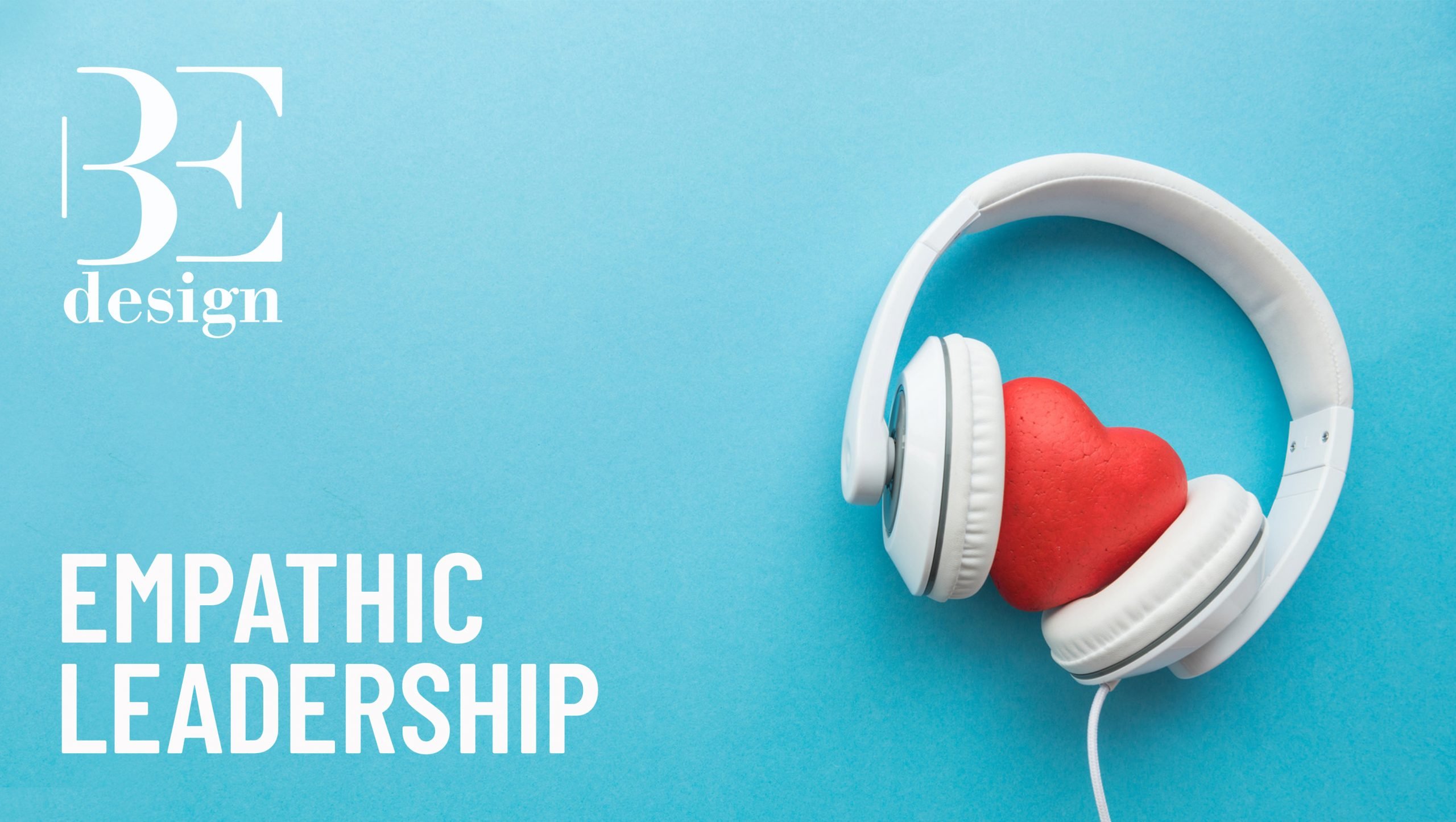
Leading with empathy- Leadership from live event creatives
LEADING TO A POST PANDEMIC WORLD; EMPATHIC LEADERSHIP, THE MOST IMPORTANT SKILL
Empathy has always been a crucial skill for leaders, but it has taken on a new meaning and priority in recent times. In fact, empathic leadership can drive tangible results in the workplace. Recent studies have demonstrated just how beneficial it can be to creativity, innovation and retention. It takes a fine balance of many different skills to be a great leader, and empathy tops the list of what leaders must get right. Our lives have been turned upside down by the pandemic. We need empathic leadership now more than ever!
The pandemic has contributed to a significant increase in multiple forms of stress, it has rewired our brains and it is making us sick! Just ask any first response worker how the stressors of the pandemic have exponentially increased the presentation of mental health issues in the general populous. The brain is an organ, and as such, it can malfunction as much as any other organ. The stigma surrounding mental health in the past stemmed from a lack of supporting documentation – depression was viewed, for example, as “simply feeling sad”. There are differences in brain shapes between people with and without mental health issues. MRI brain scans have proven that there is an actual physical difference between a healthy and sick brain.
Empathic leadership is THE KEY TO BUSINESS RECOVERY. It is critical for business leaders draw on qualities such as awareness, vulnerability, and compassion. Surprisingly the answer to finding the kind of empathic leadership is in a field that has been significantly affected by the pandemic- LIVE EVENTS AND THE PERFORMING ARTS. Who is better equipped for this kind of leadership than CREATIVES IN THE LIVE EVENT SPACE?
We understand what it is like to be consistently vulnerable, compassionate, aware. We are masters of resilience and learn very early in the piece how to navigate through environments with constant change. The very nature of our craft demands it!
Allow me to elaborate. I was recently overwhelmed by an article written by Tracey Brower at Forbes. She explores empathic leadership analysing the implications of stress on the workforce due to the global pandemic. Studies were conducted by Qualtrics, Occupational Health Science, University of Illinois, Carleton University, Academy of Management Journal, and Georgetown University . These studies provide us with a grim reality check of how well we have been faring through the crisis.
Brower writes:
MENTAL HEALTH
- A global study by Qualtrics found 42% of people have experienced a decline in mental health. Specifically, 67% of people are experiencing increases in stress while 57% have increased anxiety, and 54% are emotionally exhausted. 53% of people are sad, 50% are irritable, 28% are having trouble concentrating, 20% are taking longer to finish tasks, 15% are having trouble thinking and 12% are challenged to juggle their responsibilities.
PERSONAL LIFE
- A study in Occupational Health Science found our sleep is compromised when we feel stressed at work. Research at the University of Illinois found when employees receive rude emails at work, they tend to experience negativity and spillover into their personal lives and particularly with their partners. In addition, a study at Carleton University found when people experience incivility at work, they tend to feel less capable in their parenting.
PERFORMANCE, TURNOVER AND CUSTOMER EXPERIENCE
- Academy of Management Journal found when people are on the receiving end of rudeness at work, their performance suffers and they are less likely to help others. And a new study at Georgetown University found workplace incivility is rising and the effects are extensive, including reduced performance and collaboration, deteriorating customer experiences and increased turnover.
But here is the kicker – the ANTIDOTE IS EMPATHY and it is one of the top skills Creatives in Live Events need to master.
A new study by Catalyst demonstrated the benefits of empathy on individuals. Empathy can be a powerful vaccine to burnout, it contributes significantly to revitalising teams and improving general workplace morale and cohesion. In his Ted Talk and book neuroscientist, Jamail Zaiki discusses “Leading with Empathy in Turbulent times” exploring how the expression of positive emotions make teams better.
To create innovative outcomes, creatives must understand real people, not averages. This is what user-centric design is all about.
While it is impossible to understand another’s perspective 100%, we attempt to gather as much information through different research techniques, interviews, and close observation as we can. Empathic design is less concerned with facts about the user, such as their age or location. Instead, it explores their feelings and motivations in certain situations. Asking why do they act the way they do? What drives them towards certain behaviours? Is there a reason why they moved to this space rather than that, etc.
Empathic designers attempt to put aside our own cognitive biases, cultural influences, or personal experiences, to connect more closely to the heart of a problem. Leading our way out of a post-pandemic world is a problem we all must face together so perhaps its a good idea to look beyond the standard MBA pool for Leadership that will connect us
If you are looking or a Creative who leads through empathy. Connect with me- Team BE!-
#designerwithheart,#empathicdesigner,#designthinking,#designergirl,#creativethinking,#experientialdesigner#empathy,#eventdesign